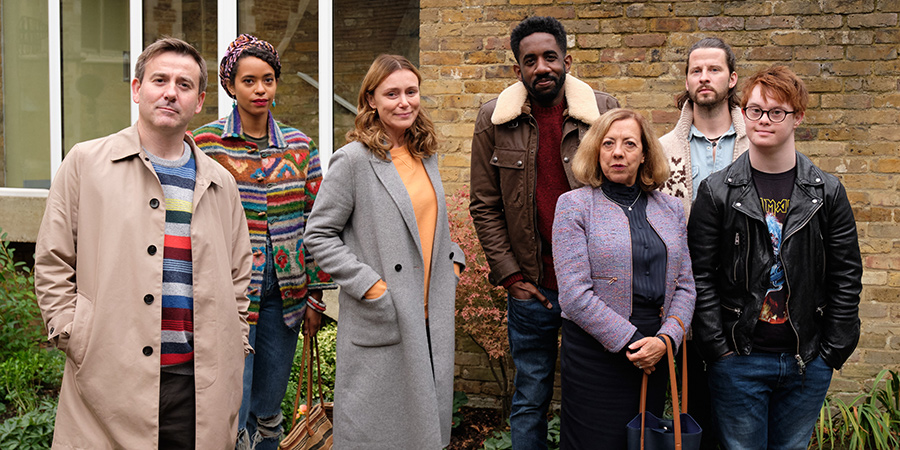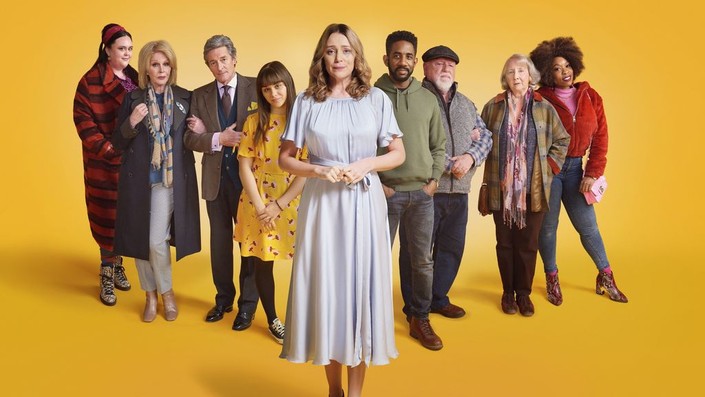How do you manage your Netflix subscription? How does it manage you with its clever diagnostics predicting your viewing patterns, and making links with their predictions of your interests?
Starved of ‘nourishing’viewing I was pointed in the direction of this six part series entitled finding Alice. It was in fact made some time ago pre-and post Covid but I so rarely watch conventional TV these days that it wasn’t difficult to miss it. I was drawn into the description of this drama as black and comic. Add Joanna Lumley and Keeley Hawes and it was a done deal. Six episodes spread over four or five days – perfect to keep me out of trouble.
So here is the plot. Alice is married to property developer Harry. They have a teenage daughter, Charlotte. Harry has created a dream house in which everything is controlled via an iPad. It is spacious and something the family have been working towards for a while. Very soon after arriving, Harry has found dead at the bottom of his stairs which is deliberately free of a banister. An accident perhaps or perhaps not? There is something sinister going on.
With Harry dead, Alice tries to work out where the fridge is in the dream home and how the curtains work amidst the shock and heartache of Harry gone. It is a tough journey and Alice finds it impossible to deal with people and especially those in authority. The police, the credit card authorities, a coroner and the funeral director all feel the hard end of Alice’s pain and perplexity. There are some excellent exchanges with authority !
Amidst some wonderful lines an intriguing storyline unfolds. It is funny and perplexing and heartbreaking all at the same time. Harry turns out to be less straightforward than most people realised and understanding and support come from unexpected places. I think I was aware that this particular series had not had rave reviews but by the end of the first episode I was rather gripped wondering what would happen next. Some reviews overlooked the way in which grief and loss and shock take shape in those who have to deal with sudden death. It is also a pretty grim reminder of how unprepared any of us might be for that moment. Indeed we might ask ourselves how much mess we would leave behind and who would uncover our secrets and those unfinished bits of business lying at the back of our proverbial cupboards.

.
Into all of this a range of characters emerge who support, befriend and hold Alice and admits the confusion and the complex mess Harry has left behind. It is a clever script with a wonderful scattering of good and funny lines. I found it consistently interesting to see how such pain and grief could be handled within the context of humour and some absurdity.
My favourite character has to be of course Alice’s mother, the passive aggressive Sarah played by Joanna Lumley. She remains absolutely unmoved by the mess Harry has left which includes messy financial management, the inevitable mysterious woman and a never before mentioned child who turns up on the doorstep. Could it get any better or indeed any worse? All of this fuelled on what seemed to be gallons of dry white wine drunk by Alice from large glasses.
I enjoyed the relationship between Alice and the mortuary worker Nathan. He plays a pivotal part on her journey through the shock and confusion of sudden death and is blessed with some wonderful one liners! One reviewer boldly claims that the show is just a mess, but I disagree. I think it does manage to combine humour, seriousness, poignancy and satire in the handling of the complexity of human pain and the incompleteness of any human relationship put under the microscope.
We need different ways to look at death and understand that there is no one way of healing grief. It is for most of us a lifelong journey of encounter, connection and at times just dislocating pain. The loneliness and perplexities of families and some relationships are portrayed here with a great deal of sensitivity. I think the actors handled the script with some style and skill. They invited us to consider some of the absurdity of life and our hopes – and ask ourselves what redeeming grief might look and feel like for us.
I was glad to have found Alice. Thank you script writers Roger Goldby and Simon Nye.

